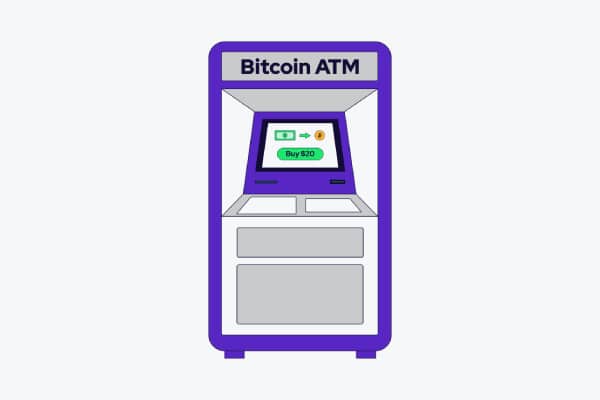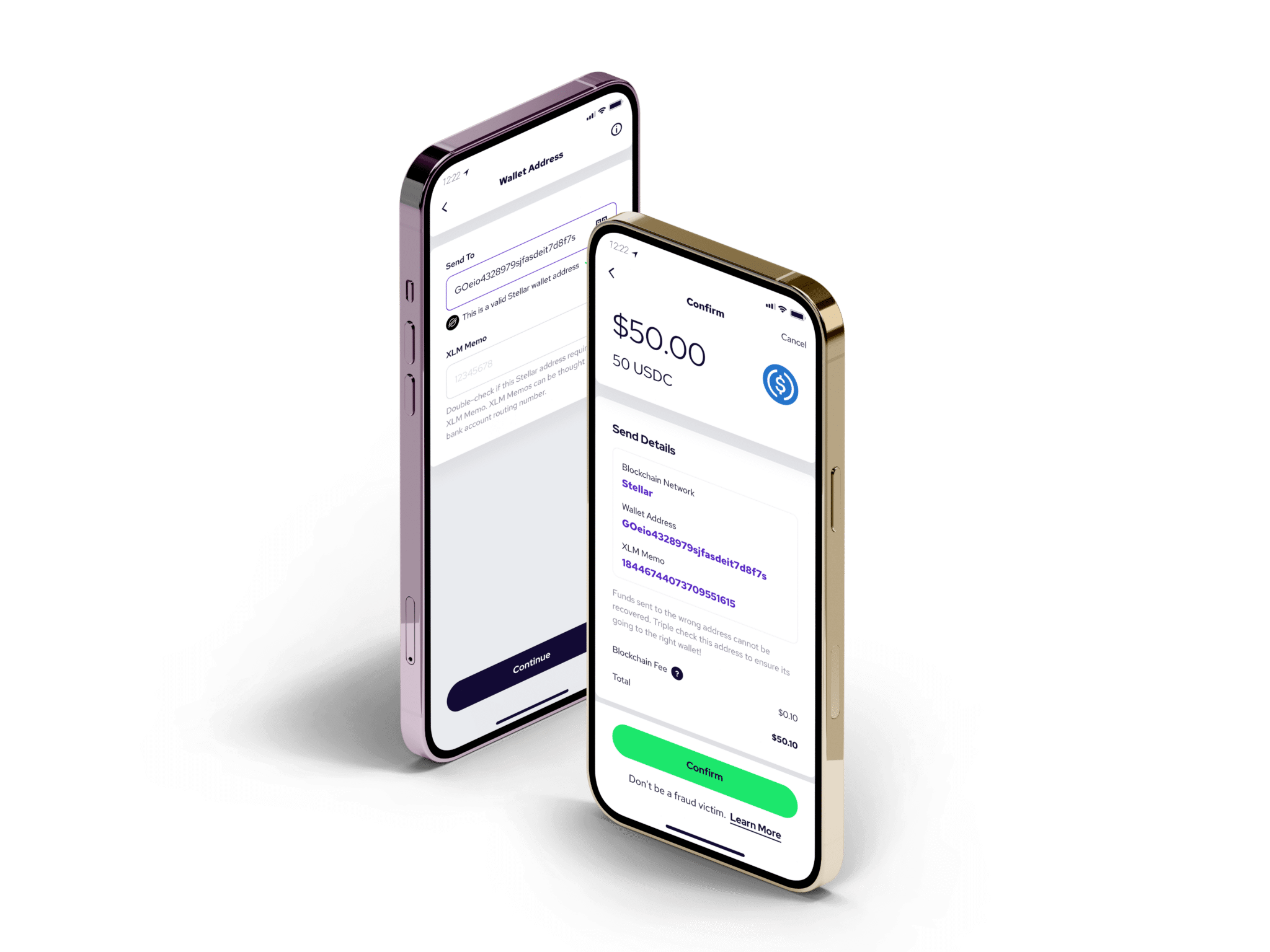Bitcoin is a cryptocurrency, a new form of money, an information network, and so much more. No matter how you use it, though, one thing is clear: Bitcoin and other crypto wouldn’t be possible without the blockchain. Get to learn more about this core functionality, how it shapes how bitcoin transactions are conducted, and what it means for other industries that are finding ways to use blockchain to improve how they do business.
A blockchain is a public digital ledger of transactions that’s difficult, if not impossible, to edit or hack into in any way. These decentralized, public ledgers verify ownership in a way that cannot be tampered with, building strong networks of trust between uses backed by this technology.
A brief history of the blockchain
The history of blockchain and bitcoin are intimately connected. The technology made its first debut in a practical application in 2008, invented by an individual, or potentially a group of individuals, named Satoshi Nakamoto, to facilitate the buying, selling, and trading of bitcoin. Nakamoto’s work on blockchain improved the initial concept for unalterable document timestamps, a concept which had been around for 25 years prior to the creation of bitcoin.
How the blockchain works
Blockchain is a literal description of how the network is organized. Individual blocks of data are connected to one another via “chains” that represent the ledger transaction facilitating the movement of data from one point to the next. In fact, Satoshi Nakamoto’s initial papers on blockchain used these two terms separately; it was only in 2016 did the term “blockchain” combining both words come about.
Every blockchain is powered by a number of nodes. Each node is a computer connected to other computers in the network that keep the blockchain up and running. Multiple nodes must review and verify the transaction before it’s confirmed, which is precisely what makes these transactions so secure. For example, in bitcoin, the blockchain checks that the cryptocurrency was not spent more than once or that the transaction was not fraudulent. Once the transaction is verified, the data is added to the network as a block and is connected via chain from its origin to the new data.
Are blockchains private or public?
Blockchains can be private, public, or a hybrid that takes aspects from each blockchain type. A public blockchain can be audited by any node (aka computer) on the network, while a private blockchain can only be verified by those authorized to be on the network. Additionally, private blockchains with tighter controls on who is involved in the process have the authority to alter transactions if needed. Bitcoin is considered a public blockchain. Truly decentralized blockchains are public.
Why is the blockchain important for crypto?
We’ve already established in this guide that bitcoin and other crypto networks cannot function without blockchain technology. However, the importance of this technology goes above and beyond simply informing how crypto works. Here are four main reasons why the blockchain is crucial for the success of bitcoin and other crypto:
Accuracy
Verification of every crypto transaction involves many nodes. With so many machines in the mix, the same transactions are run, re-run, and verified in multiple ways. This further ensures the accuracy of every transaction conducted in crypto.
Fraud
Unlike physical forms of currency which may still have counterfeiting issues – an estimated $70 million in counterfeit bills is in circulation in the U.S. – bitcoin and other crypto is extremely difficult to fake, and that’s if they can be forged at all. That’s because the blockchain technology makes it extremely difficult, if not impossible, to alter transactions on the public network on which blockchain runs.
Security
Much of bitcoin and other crypto’s appeal is the fact that it’s decentralized, or that there’s no middlemen involved in transactions. Unlike U.S. dollars and other fiat currency, which is run from a central bank, no single institution is squarely involved in the facilitation of crypto. For many, it’s this decentralization that makes crypto so trustworthy.
Efficiency
Unlike regular banks that don’t conduct business at night, on weekends, or holidays, the blockchain is up and operationally globally 24/7. This enables transactions to be conducted at rapid speed at any time of day, any day of the week, anywhere in the world. Speed and efficiency certainly trumps waiting until Monday for transactions conducted Friday evening!
Blockchain issues and how they may be solved
For all its advantages, blockchains do come with some downsides, but experts are working around the clock to resolve many of these issues. Some of the most pressing issues are:
- Slow confirmation times. Most robust and secure blockchains produce blocks at intervals which don’t make sense for every day transactions, like buying a cup of coffee. Bitcoin, for example, produces blocks every ten minutes. You wouldn’t want to wait at the Starbucks register for ten minutes before your payment clears would you? Thankfully, there are Layer 2 solutions like the Lightning Network to solve for this.
- Limited transactions per second. Unlike major card networks that can handle thousands of transactions each second, crypto networks like bitcoin can only handle a few transactions each second. This is referred to as the “bitcoin scalability problem.” Speed improvements will be essential to scaling the blockchain and crypto networks specifically. Once again, the Lightning Network is a solution here.
What is distributed ledger technology, and what does it have to do with blockchain?
Distributed ledger technology (DLT) is another term for blockchain. Using cryptography, the DLT stores and secures all information contained within. While it functions the same as blockchain, DLT is the term preferred by bitcoin to refer to its decentralized network.
What is the blockchain used for? Applications for blockchain beyond crypto
Blockchain may be heavily associated with bitcoin and other cryptocurrency, but this technology is making its way into other creative and innovative applications. In some industries, such as the financial industry, blockchain has formally entered the “early adopter” phase and is becoming more essential.
Blockchain is shaping the future of many sectors of a wide range of industries, including:
- Fraud detection. Banking, insurance, voting records, and other industries are experimenting with blockchain technology to help minimize fraud. That’s because blockchain’s strong, hard-to-alter records can prove – or disprove — if a transaction is truly legitimate.
- Healthcare. From secure and unaltered record-keeping to minimizing data silos that are frequent in healthcare, blockchain technology is revolutionizing patient care.
- The music industry. Record companies and other music producers are applying blockchain technology to discover unauthorized use of music. Some are also discovering its usefulness to distribute uncensorable new releases without content delivery networks (CDNs) like YouTube.
- Supply chain. Tracking goods and supplies across a vast global network is made easier and more accurate with blockchain. Companies that deal in precious gems and metals have proposed utilizing blockchain to authorize the source of goods, while food supply companies are dabbling in blockchain technology to minimize counterfeits making their way into the marketplace.
How to get started with bitcoin
Now that you know precisely how blockchains in crypto “work,” you can brag to your friends! If you don’t feel much like bragging, you can make a transaction on the blockchain with Coinme by creating an account and purchasing bitcoin!


